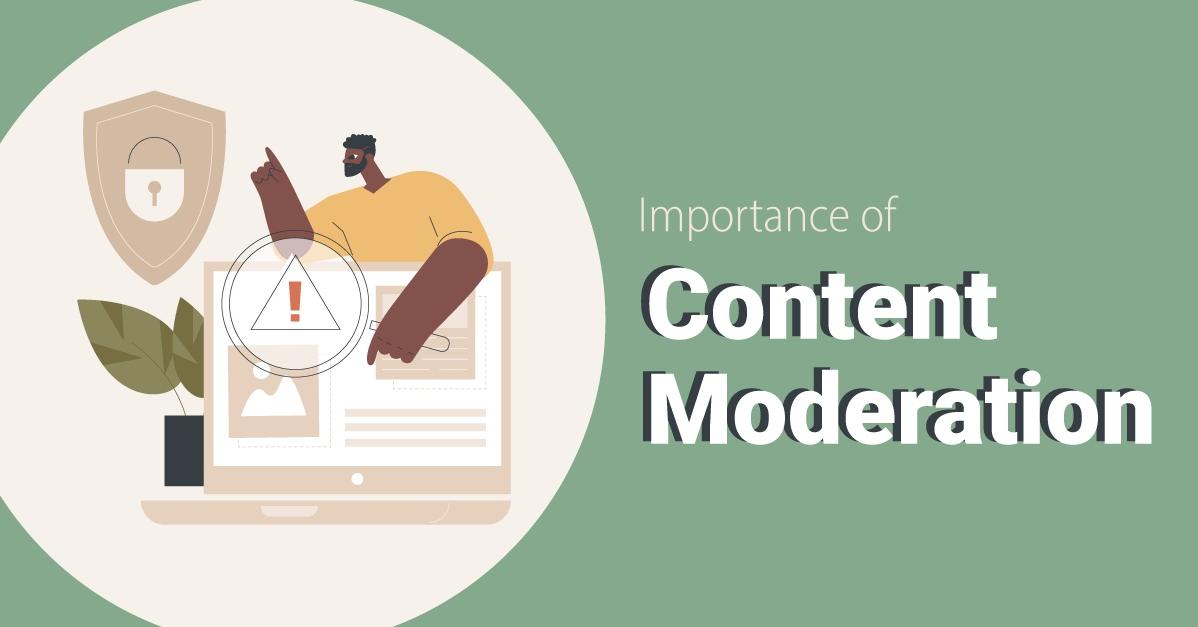In today’s hyperconnected world, the internet has not only transformed how we communicate but has also redefined the boundaries of freedom of speech and expression. However, as the digital landscape continues to evolve, the prominence of undesirable, harmful or illegal content has emerged as a significant issue. In this regard, content moderation acts as the gatekeeper to ensure a safer and more respectful online environment. This blog post aims to highlight the importance of content moderation in the digital era, with a focus on its impact and practical implementation in different online contexts.
The Crucial Role of Content Moderation
Content moderation serves as the backbone of digital safety and security, curbing the dissemination of unwanted content and promoting the positive benefits and potentials of digital platforms. Before venturing into the various aspects of this process, let’s understand the basic premise.
Understanding the Concept
Content moderation pertains to the practice of monitoring and analyzing the user-generated content (UGC) on digital platforms to dismiss content that violates the community standards or guidelines. Its objective is to create and maintain a safe, respectful, and engaging online landscape where users feel valued and protected.
Filtering Harmful Content
One of the most significant aspects of content moderation is filtering harmful content, such as online hate speech, explicit materials, and cyberbullying. By keeping a check on these adverse elements, it ensures a user-friendly environment on platforms.
Preserving Brand Reputation
For businesses, content moderation is also critical for preserving and enhancing their online reputation. Improper or offensive user-generated content, if left unchecked, could be detrimental to a company’s brand image and success.
In the context of businesses, professional content moderation services play a critical role. These services are equipped with the necessary tools and experienced manpower to effectively monitor content, ensuring a positive and safe digital presence for businesses. This not only protects the brand’s reputation but also paves the way for better user engagement and interaction.
Implementing Content Moderation
While implementing content moderation, it is essential to have a profound understanding of the digital space you are operating in. This includes having a clear idea about the user demographics, platform regulations, your own company guidelines, and what falls within acceptable bounds in the communication context you are dealing with. This understanding allows you to discern which rules best apply to a scenario, promoting free and enriching interactions while maintaining a safe, respectful digital environment.
The next step is to leverage the right moderation techniques, which could include pre-moderation (moderating content before it becomes public), post-moderation (moderating content after its publication), reactive moderation (moderation in response to user reports), and automated moderation (using machine learning and AI systems to moderate content).
Choosing the right methods requires an understanding of the advantages and limitations of each approach and how they align with your overall business goals. For instance, pre-moderation can ensure that harmful content never gets published, while post-moderation can provide more immediate user interaction.
Knowing Your Platform and Audience
Every digital platform has its unique set of rules, guidelines, and an array of audience demographics. Successful moderation demands an understanding of these differences and adapting the moderation strategies accordingly.
Employing the Right Moderation Techniques
There are different moderation techniques, such as pre-moderation, post-moderation, and automated moderation. Choosing the right methods depending on the platform, audience, and type of content is crucial for the effective management of content.
Seamless Integration with Community Management
For organizations, effective moderation also requires seamless integration between their community management team and moderators to address user concerns and maintain a positive and engaging platform.
Entrepreneurs and businesses might wonder how they can single-handedly manage all aspects of moderation while also focusing on their core business operations. This is where the decision to outsource live chat support comes in handy. By doing so, businesses can draw upon the expertise and resources of external agencies, removing the burden of managing all aspects of content moderation in-house.
Conclusion
In conclusion, as the online landscape expands and evolves, the importance of content moderation in the digital age cannot be overstated. From protecting users and preserving the brand image to enhancing user engagement and interaction, content moderation serves an array of critical functions. Balancing these operational tasks with the practical demands of running a business can be challenging, but with strategic outsourcing, companies can ensure that they are upholding their commitment to creating safer and more respectful online spaces.
